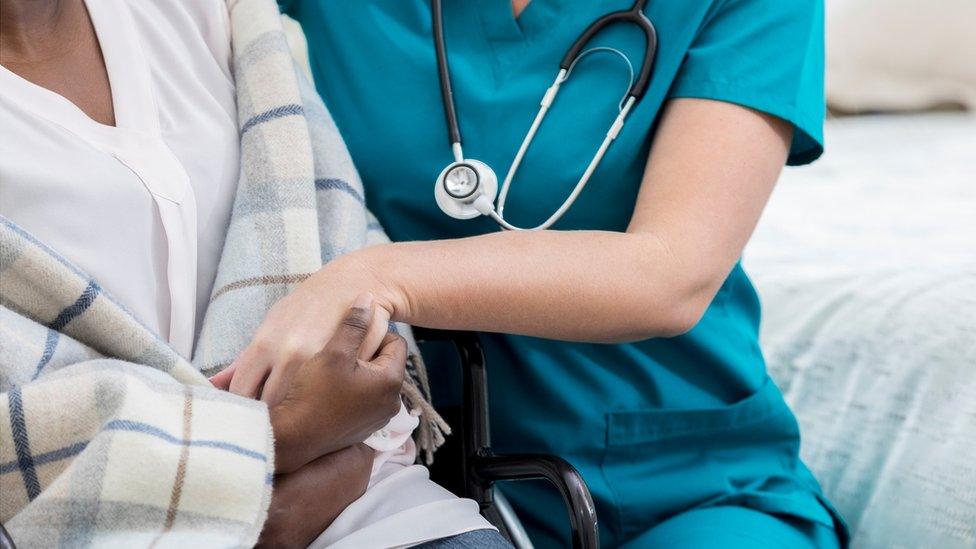Parkrun: Keeping fit with running after a cancer diagnosis
- Published
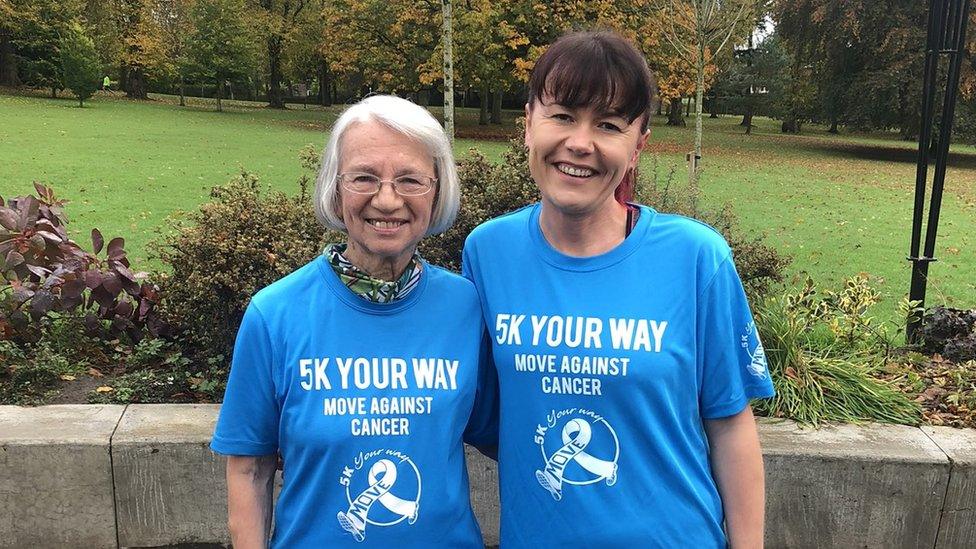
Etta Roberts (left), pictured with fellow runner Kasia Garbal
Clocking up 100 Parkruns is always impressive, but for one woman, it is even more significant.
Etta Roberts is 74 and joined the weekly 3.1 mile (5km) run round her local park to help her recover from cancer.
"The physio team at the hospital were very supportive of the benefits of staying active, and it's a big help to recover from surgery," she said.
"I found Parkrun great during chemo, I think it helps to assimilate the chemo drugs. It improves your circulation.
"I started Parkrun before my surgery so I would be up and running and I would know what it was."
Etta is part of the 5k Your Way initiative.
It encourages people who've had a cancer diagnosis to stay active and get out to the park on a Saturday morning to take part in a group run.
Clocking up 100 Parkruns after cancer diagnosis
Kasia Garbal is also involved.
She finished a Parkrun in August, just 10 days after she had a mastectomy.
"When I was diagnosed, I decided to get super fit, super healthy to take on the challenges ahead of me, so that when my operation came it wasn't a big issue at all," Kasia explained.
"I was fit, I was healthy, I decided to go back to normal life as soon as I could.
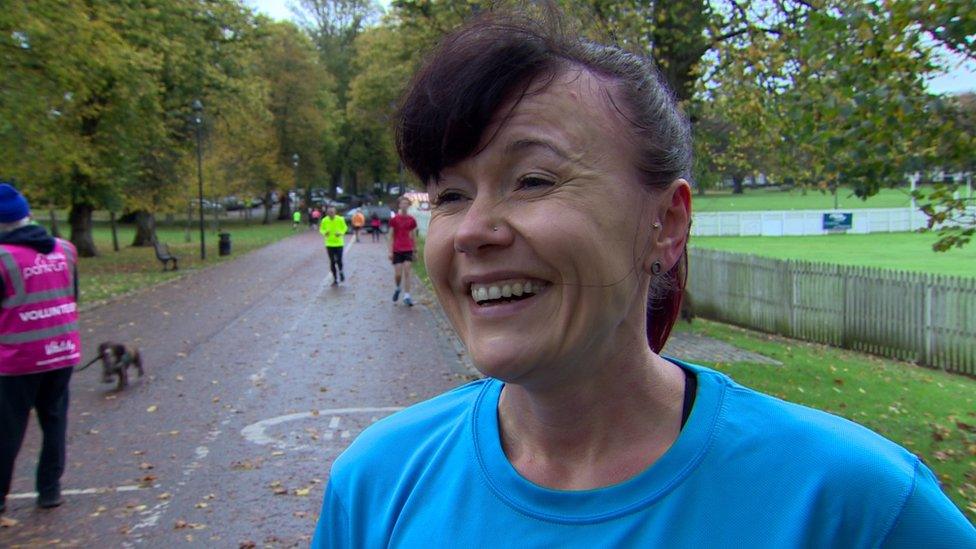
Kasia took part in a Parkrun 10 days after she had a mastectomy
"I thought that after the operation I'd be lying in bed for weeks but because I was fit and healthy I was able to get back to running.
"It made me feel so good - like cancer didn't matter because I could still run, I could still do things."
There are Parkruns all across Northern Ireland, although Wallace Park in Lisburn is the only one affiliated with the 5k Your Way Initiative.
Dr Gwyneth Hinds is urging cancer survivors to put on their running shoes.
"We know that it'll reduce anxiety and depression and also fatigue, which is one of the symptoms that really gets people down after cancer diagnosis," Dr Hinds explained.
"It isn't easy going through a cancer diagnosis and treatment, so when you know that by doing exercise you're helping your treatment work better and improving your chances of survival, it's good news all round."
Related topics
- Attribution
- Published26 April 2021
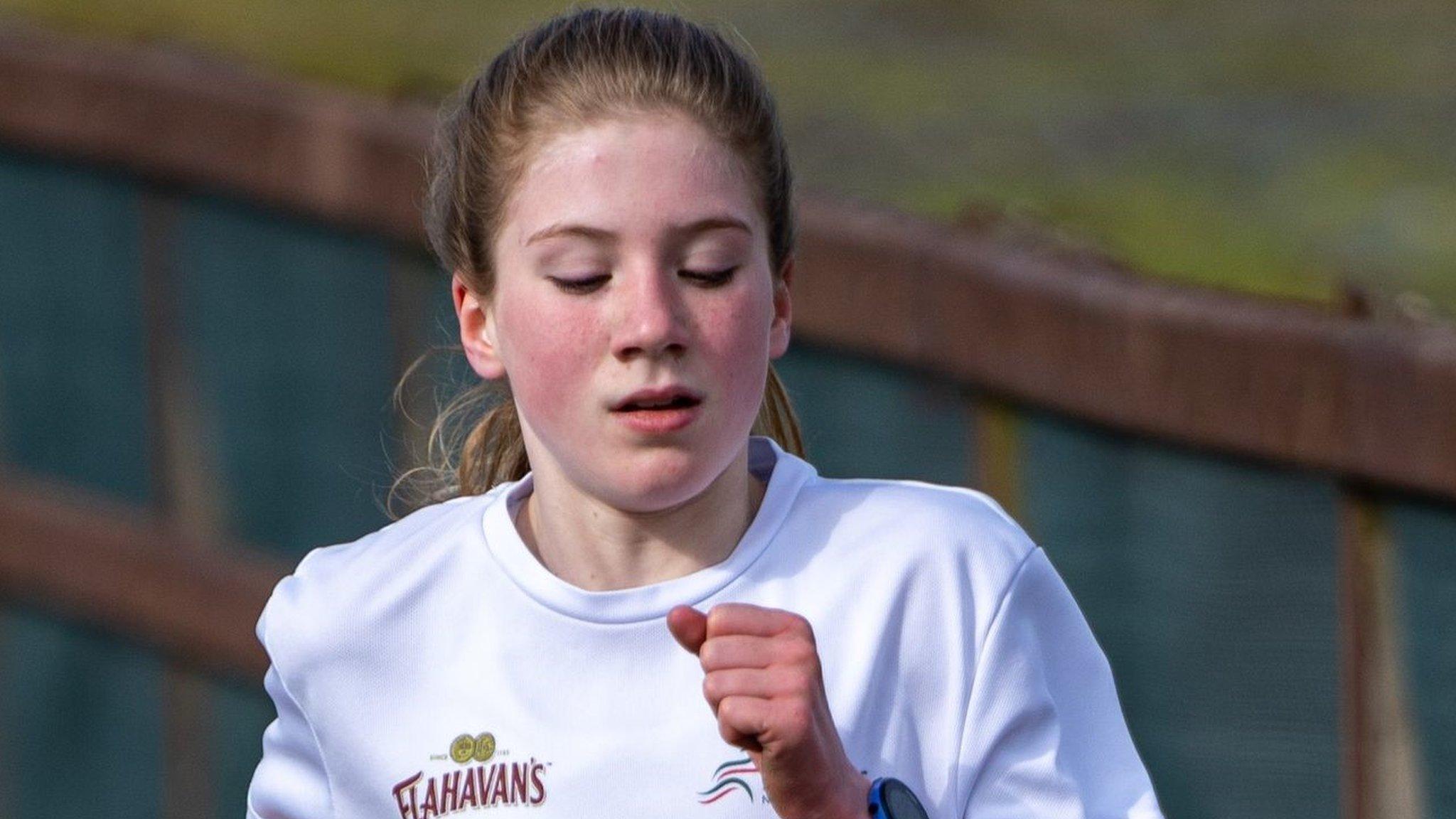
- Attribution
- Published11 June 2021
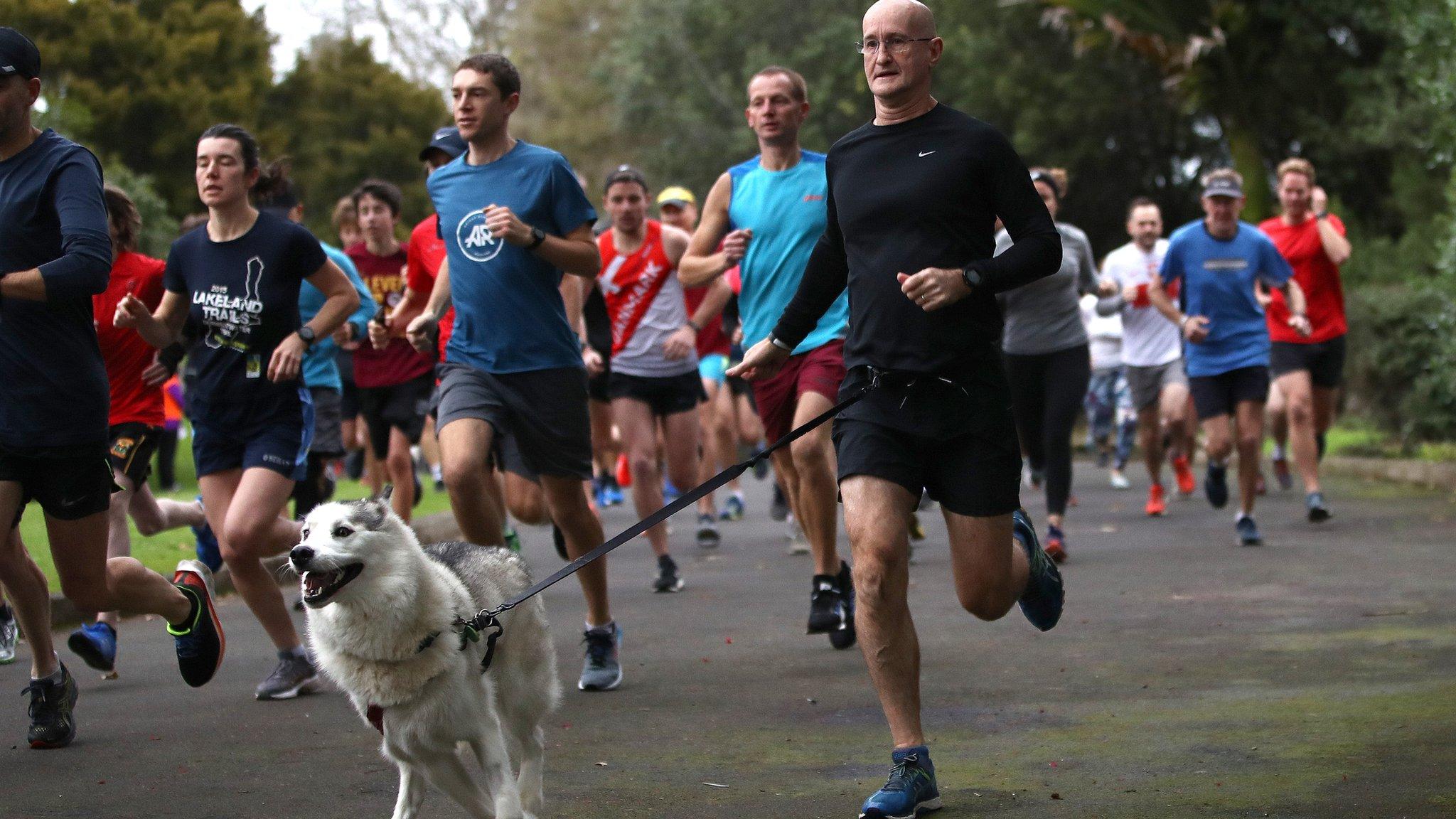
- Published1 October 2021
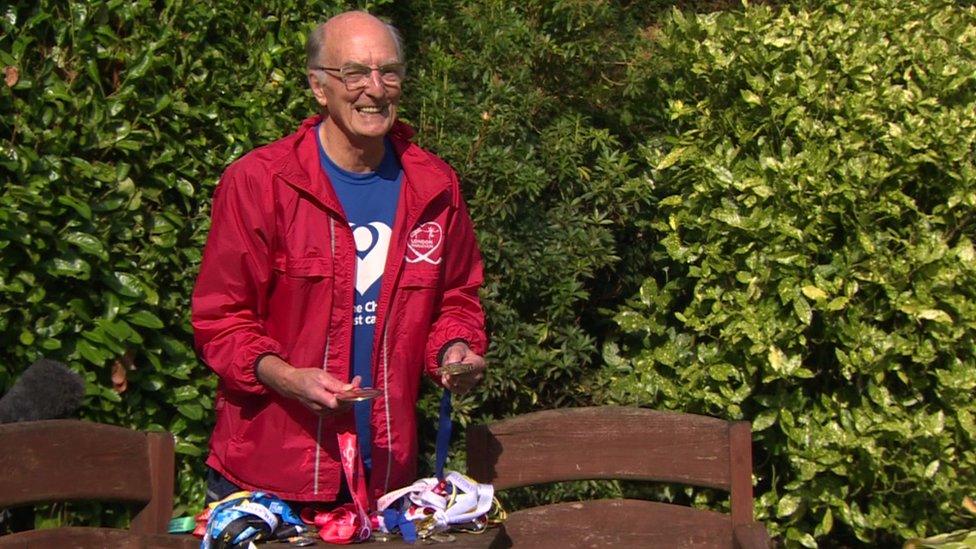
- Published8 September 2021
